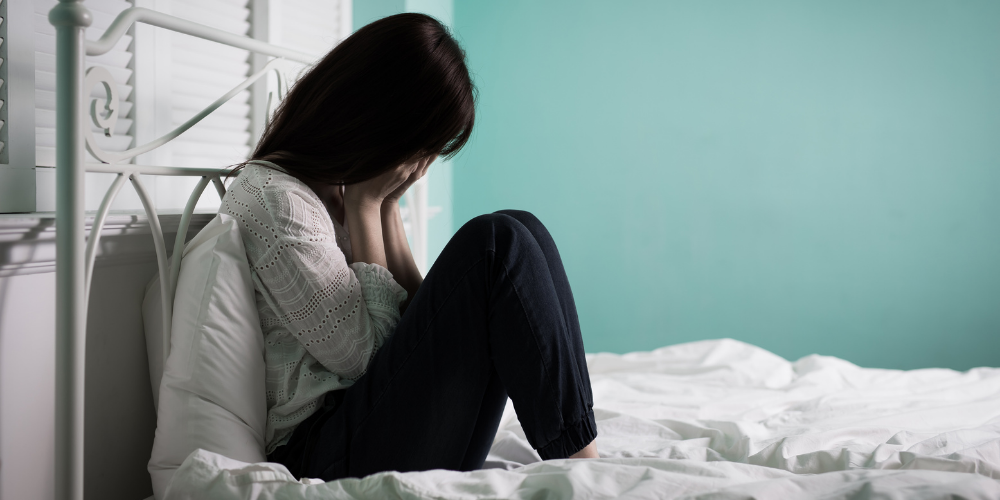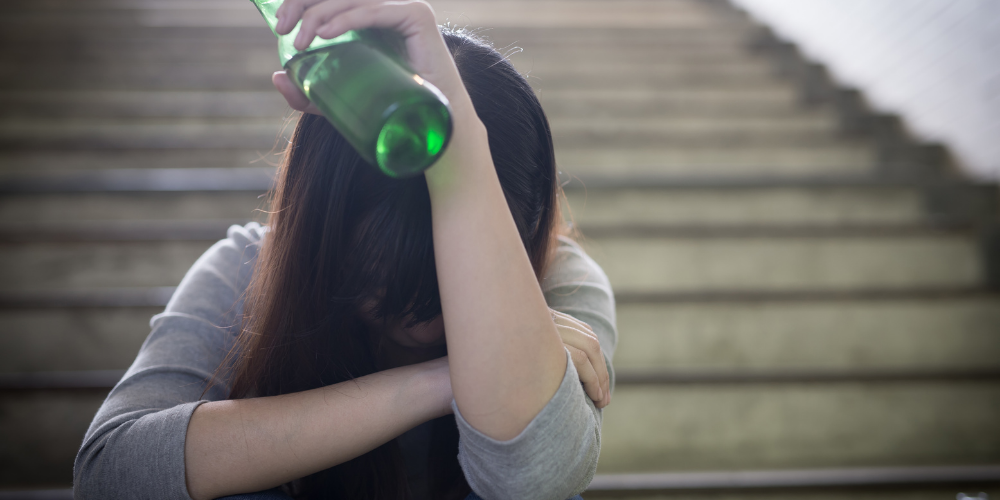Alcohol has a firm foot in our culture and seems fitting for most of life’s events–good and bad. Even with booze readily available, escaping life’s troubles can prove to be an impossible challenge. At times it seems the only place to find comfort in sorrow’s is at the bottom of a bottle. And that’s where issues arise: attempting to self-medicate mental health issues through alcohol consumption. Depression and alcohol abuse have long been linked, but the prevalence of these co-occurring disorders continues to skyrocket. Over the last couple of decades research has solidified one key fact: drinking can trigger depression, as well as depression can kick-start problematic drinking habits.
Drinking consistently when facing something difficult may exacerbate mental health issues, including depression. According to the Clinical and Research Institute on Addictions, people suffering from alcohol use disorder (AUD) are four times more likely to experience depression than people who don’t drink. Studies also show that a third of people battling with a depression diagnosis are also struggling with alcohol abuse. Unfortunately, alcohol effects the brain in a way that makes depression, and other mental health worries even worse.
Connection Between Depression and Alcohol
People with co-occurring depression and alcohol problems face serious challenges when seeking treatment. In part, stigma is still attached substance abuse and mental health, creating barriers for those looking to heal from one or the other, or both.
National Epidemiologic Survey on Alcohol and Related Conditions (NESARC) asserts that about 14% of the population met the criteria for AUD in the past year. Additionally, about 29% reported experiencing AUD at some point in their lifetime. Other research has shown that when people experience both AUD and depression, both conditions tend to be more severe and are more difficult to treat when appearing together. But what is the connection between depression and alcohol?
Alcohol is commonly referred to as a depressant, but that’s not its only functionality. In fact, small quantities of alcohol can actually create feelings opposite of depression like euphoria, pleasure, and even relief from daily stressors. Its initial effects are mostly positive. As blood alcohol content level rise in the body, the brain’s neurotransmitters trigger dopamine production, which is the feel-good emotion often experienced after a few glasses, a couple of shots, or a casual beer. That’s where the good news ends, though. Alcohol leftover in the body can drastically slow down the body’s functions, resulting in the “downer” feeling that many experience. For those who are prone to depressive thoughts, drinking can fuel a new level of mental health concerns.
Why Do People Drink When They’re Sad or Stressed?
Alcohol affects your brain by releasing chemicals called endorphins. The “feel good” chemicals that rush through nerve endings create the buzzed feeling that many alcohol enthusiasts enjoy. Along with the initial euphoria is the loss of inhibition and fading away of stress, almost like magic. As a result, many are able to forget impactful problems for a short period and just focus on having fun. It can also alleviate symptoms of anxiety and depression, but only for a short period.
Unfortunately, good feelings like these can be addictive, especially for people who have trouble relaxing and handling stress. They may cause an individual to drink too much alcohol or too frequently, in turn leading to an alcohol use disorder. In situations such as these, it’s the depression that can trigger AUD. In some cases it happens in reverse order.
According to the American Addiction Centers, some people have overlapping genetic predispositions that make them more vulnerable to depression and alcohol issues. The onset of one condition can trigger the onset of the other.
Many people, especially those who face mental health concerns, are drawn to the euphoric, as well as sedative effects alcohol creates. As a strategy to self-medicate, alcohol is known to temporarily distract from intense feelings of sadness. The problem is that these distraction culminate short-lived relief and prolonged bouts of worsening symptoms. Depression and alcohol is a dangerous combination and can fuel more issues rather than resolve them.
Alcohol can Exacerbate Mental Health Issues
By definition, alcohol is a depressant and works similarly to anti-depressive and anti-anxiety medications. That is, it works by slowing the brain’s activity and central nervous system. Prescribed medications like anti-depressants work by boosting certain neurotransmitters like noradrenaline and serotonin. These brain chemicals are thought to be involved in regulating mood and thereby effectively addressing depression symptoms.
The side effects of these drugs can make it difficult to function normally and may include:
- Drowsiness
- Confusion
- Headache
- Dizziness
- Memory loss
- Poor concentration
Alcohol, however, is a more accessible and cheaper alternative, therefore, ideal for self-medicating purposes. Both antidepressants and alcohol are ineffective as they do not treat the primary source of depression. Moreover, ingesting alcohol in large amounts can actually worsen symptoms of depression, plus lead to a number of other health concerns like addiction, disease, and more.
Help for Depression and Alcohol
Treatment methodology that addresses depression and alcohol abuse is known as dual diagnosis care. In co-occurring disorders, clinicians work to address mental issues like depression while also treating AUD. Treatment for depression often involves antidepressant medications. These medications can help to modify a person’s brain chemistry in order to stabilize moods without the risk of prescription abuse. They are not generally considered addictive.
While medication can be crucial in the treatment of depression, it doesn’t act as a cure. Medication should be used in combination with therapy to address underlying issues, as well as lifestyle changes, that may contribute to mental health issues like depression. Cognitive Behavioral Therapy (CBT), for example, can treat underlying issues as they pertain to depression. This form of therapy entails problem solving by modifying dysfunctional thinking and behavior. For co-occurring depression and alcohol abuse, a combination of treatment methodologies that are catered to the individual proves to be most effective.
AspenRidge AspenRidge Virtual Care: Recover from Depression and Alcohol
AspenRidge AspenRidge Virtual Care provides telehealth addiction treatment using secure online technology. Our exclusive online substance abuse treatment programs and dual diagnosis therapy offers more people access to evidence-based care. Our aim is to address substance abuse issues, plus underlying mental health issues like depression.
Dealing with negative thoughts is not easy and can often be debilitating. Our program is tailored to match client needs and our various course options allow you to select from a program that fits your lifestyle. As an intensive outpatient program, AspenRidge Virtual Care provides care through virtual systems that incorporate individualized and group sessions. Through video conferencing, AspenRidge can securely assist those struggling with ongoing depression and alcohol abuse.
Our programs offered include:
- 6-Week AspenRidge Virtual Care Reset
- 12-Week AspenRidge Virtual Care Intensive Outpatient Program
- 12-Week AspenRidge Virtual Care Outpatient Program
These twelve and six-week courses are designed to address substance abuse according to the severity and complexity of the symptoms. Each program offers flexibility and support through individual and group counseling, plus family counseling.
For more information on our virtual programs, go here. Contact us today for more information on care and enrollment, or to verify your insurance – call 720-650-8055.







